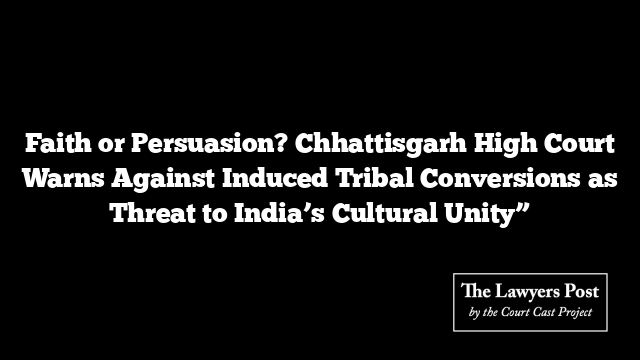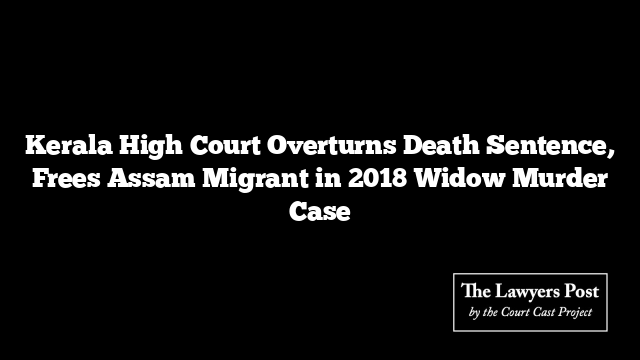The Chhattisgarh High Court has voiced strong concern over what it described as “induced religious conversions” among tribal communities, observing that such practices disrupt social harmony, fracture indigenous identities, and risk tearing at the threads of India’s cultural fabric.
A Division Bench of Chief Justice Ramesh Sinha and Justice Bibhu Datta Guru, while hearing a series of petitions linked to restrictions on the entry of Christians into several villages, remarked that missionary activities—when driven by inducement or deception—cease to be acts of faith and instead become instruments of manipulation.
The Court acknowledged that while the Constitution protects the right to propagate religion, that right does not extend to conversions achieved through coercion, promises of aid, or exploitation of poverty. “Among deprived and marginalized groups, promises of better livelihood, education, or equality often blur the line between charity and persuasion,” the Bench observed, adding that the erosion of voluntary faith creates deep rifts in once cohesive communities.
The judges noted that in several tribal belts, conversions have become flashpoints for social division—fueling tension, ostracism, and sometimes violent conflict. “When faith is traded for incentives, the sanctity of belief collapses,” the Court stated, emphasizing that the true danger lies not in religious diversity but in the distortion of choice.
The Bench elaborated that conversion among tribal groups frequently leads to an erosion of traditional customs, languages, and communal rituals. Those who adopt a new faith, it said, often find themselves distanced both from their heritage and from their original community. This fragmentation, the Court warned, also has political implications, as certain constitutional privileges tied to Scheduled Tribe and Scheduled Caste status can be affected by a change in religion—altering demographic and electoral equations.
Addressing the specific petitions, the Court examined hoardings erected in several villages of Kanker District that prohibited the entry of pastors and “converted Christians.” These signs, installed by local Gram Sabhas under the Panchayat (Extension to Scheduled Areas) Act, 1996, were described as precautionary measures intended to safeguard local culture rather than blanket bans on Christians. The judges clarified that the government circular relied upon by the Gram Sabhas did not authorize discrimination, but rather aimed to prevent illegal conversion activities.
“The right to propagate one’s religion under Article 25 does not extend to conversion by inducement, force, or fraud,” the Court reiterated, finding the cautionary hoardings to be constitutionally sound.
While dismissing the petitions, the Court advised the petitioners to approach the Gram Sabha or the sub-divisional officer for further remedies. It also directed that if anyone faces genuine threats or restrictions from entering their villages, they may seek protection from the police.
Through its observations, the Bench offered a broader message—warning that India’s secularism survives not on uniformity but on respect for difference. Faith, it said, must remain “a matter of conviction, not compulsion.”





